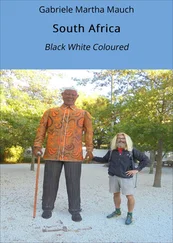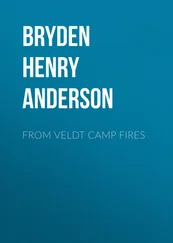Henry Bryden - Tales of South Africa
Здесь есть возможность читать онлайн «Henry Bryden - Tales of South Africa» — ознакомительный отрывок электронной книги совершенно бесплатно, а после прочтения отрывка купить полную версию. В некоторых случаях можно слушать аудио, скачать через торрент в формате fb2 и присутствует краткое содержание. Жанр: foreign_antique, foreign_prose, foreign_language, на английском языке. Описание произведения, (предисловие) а так же отзывы посетителей доступны на портале библиотеки ЛибКат.
- Название:Tales of South Africa
- Автор:
- Жанр:
- Год:неизвестен
- ISBN:нет данных
- Рейтинг книги:4 / 5. Голосов: 1
-
Избранное:Добавить в избранное
- Отзывы:
-
Ваша оценка:
- 80
- 1
- 2
- 3
- 4
- 5
Tales of South Africa: краткое содержание, описание и аннотация
Предлагаем к чтению аннотацию, описание, краткое содержание или предисловие (зависит от того, что написал сам автор книги «Tales of South Africa»). Если вы не нашли необходимую информацию о книге — напишите в комментариях, мы постараемся отыскать её.
Tales of South Africa — читать онлайн ознакомительный отрывок
Ниже представлен текст книги, разбитый по страницам. Система сохранения места последней прочитанной страницы, позволяет с удобством читать онлайн бесплатно книгу «Tales of South Africa», без необходимости каждый раз заново искать на чём Вы остановились. Поставьте закладку, и сможете в любой момент перейти на страницу, на которой закончили чтение.
Интервал:
Закладка:
Du Plessis was much more serious, and said with a solemn face: “It is not right to laugh at dreams, my friend; the Heer God sends them for some good reason, undoubtedly. I had nearly given this search up as hopeless. We must; yes, allemaghte! we must try again.”
We strolled after breakfast, taking our pipes with us, to the chimney-like cul-de-sac where Tobias Steenkamp’s footprints had been last seen, four years before. The place looked more than ever dark, narrow, and forbidding; and as we stood upon the sandy floor of the ravine and gazed upward to the faint patch of sky showing between the cliffs, two hundred feet above, the sharp contrast made it yet more awesome. For half an hour we looked about us, examining carefully every cranny and projection within our vision. Suddenly a boyish expedient of mine flashed into my mind. I had in my young days in Derbyshire ascended a steep and very narrow fissure in a cliff among my native dales, by copying faithfully the example of a sweep’s boy, whom I had watched climbing the great kitchen chimney. Why not make the attempt here? It looked a tremendous risk, but still it might be accomplished up in the far corner where the cliff-walls ran but a foot or two apart. I had hazarded my limbs many a time as a boy in search of birds’ nests: why not here in pursuit of this mystery which so strangely baffled us? I told my plan to Du Plessis; he evidently thought very little of it. However, as we strolled back to camp, I thought out and discussed my scheme, and, so far as I could, prepared for it in the afternoon. We had at the wagons a long coil of stout rope some one hundred and fifty feet in length. It seemed too short for my purpose, and I fastened to it, therefore, with the greatest care, another seventy feet of strong ox riems – halters of raw hide – carefully lashed one to the other. I thus had over two hundred feet of rope.
Next morning, after a long night’s rest, Du Plessis and I set off for the ravine, taking with us our most useful native servant, Andries, one of the drivers. I carried about my person some billtong (dried meat), matches, a revolver, hunting-knife, and a flask of brandy. Du Plessis was equipped (save for the revolver) in the same manner. Arrived at the extremity of the ravine, we threw down the rope, one end of which I attached to my waist I wore, as usual, only my flannel shirt and a pair of moleskin trousers, and upon my feet I had a pair of velschoens – Boer field-shoes, made of strong yet soft leather of home-tanned hide. These shoes were close-fitting, light, and pliable, and exactly suited my purpose.
I now made my way back to where a sort of ledge ran sloping upwards a little way towards the narrowest part of the ravine – at the end. I carefully climbed this, and found myself, as I had expected, some thirty feet on my way up, and now right in the narrowest extremity of the narrow gorge. At my back was the cliff wall; in front of me was the opposing wall, less than two feet away; on my right was the mass of rock ending the gorge, sometimes uneven and projecting a little, sometimes almost smooth; on my left hand was open space, where the gorge slowly widened out I looked upward in doubt, almost in dismay; I looked down upon Du Plessis’ serious face: it was no use waiting; I took one long breath and began the task. My plan was this: pressing my feet against the wall of rock in front, and planting my back hard against the cliff behind me, I gradually levered my way upwards. I made use of every inequality and jutting rock that could aid me, and occasionally obtained an excellent rest from bits of rock on my right, upon which I could lean, and thus relieve the tension. I worked my way as rapidly as possible, knowing how the strain must tell upon my legs, and, as far as half-way, or a little beyond, progressed better and more speedily than I could have hoped. Now, the labour began to tell more hardly as every ten seconds passed. I was in good sound fettle; I had always been a “stayer”; and my wind was in capital order; but my breath now began to come with difficulty, the sweat was pouring from me, my shirt was ripping off my back, and, worst of all, my legs were failing me. At three-fourths of the distance – about one hundred and fifty feet up – I noticed a projecting rock on the right. I worked up to this with infinite difficulty, and then, leaning my right arm and as much of my body over as possible, I rested for full three minutes. I was now, as I well recognised, in a very serious plight. There were yet fifty more feet of cliff to climb. I had already undergone what seemed superhuman labour, and my muscles were relaxing, my strength and wind were ebbing. To return was as perilous as to go on; to fall meant a shocking death I took out my brandy flask, drained it to the last drop, uttered within myself a half-prayer to a God I had long neglected, hitched up my belt and trousers, and struggled on. If I live to a hundred, I never can forget the terrible nightmare of that last fifty feet. But for the brandy, that put new if fleeting energy into me – it was Three Star, luckily, and I believe it saved my life – I should never have succeeded. I most heartily wished I had never seen Du Plessis, never started on this accursed trip, never offered to risk my life. I struggled on, growing weaker and slower. Once I slipped three or four good feet, and only saved myself by some miraculous luck! The sharp wall behind me laid a deep furrow into my back as I did so, and I felt the warm blood issuing forth and mingling with the sweat that ran from me.
Once more I set my teeth for the last twenty feet. I recovered my ground, and foot by foot fought my way on. The muscles of my legs quivered like aspen leaves; I feared they would give way each moment. At last – I hardly know how – I found my face above the cliff; the sweet outer air met me; I gave a last struggle, got foothold on the right, flung myself forward, and lay upon the cliff top with my feet still projecting over the edge. I remember hearing a faint shout from far beneath me, and then all swam.
When I came to, I suppose I had lain senseless for a quarter of an hour. I was in sorry plight indeed. I was stiff, sore, bleeding from my back, and the poor remnant of my shirt hung in front of me. I staggered to my feet and looked about me. A glance showed me that there were yet difficulties to be overcome before we could descend to the vlei, yet they were not insuperable. The chiefest of them lay in a sharp saddle-back of rock, sheer on either side, which had to be crossed somehow before the main mass of the inner ring of mountain could be attained. But my strength was coming back to me; a sense of triumph and elation over the dreadful task I had conquered rose in my breast; and my determination to pierce the secret of the valley was stronger than ever.
Here and there upon the cliff top grew some wild olive trees, stunted and dwarfed, but strong. To one of these I fastened the end of the rope I had brought up with me. I now approached the edge, lay down, and looked over. Du Plessis was there, gazing anxiously upward. I shook the rope and shouted to him to come up. We had agreed upon this plan, if I succeeded; and he now fastened the lower end of the rope round his waist and began his climb. With the help of the rope it was comparatively easy work. The Dutchman was strong in the arms and active, and came steadily on. Occasionally he unbound the rope, and refastened it at a higher point to his waist, as an insurance against falls. In fifteen minutes he was up beside me. Even his journey had been no light one. He, too, streamed with perspiration; his limbs trembled, and he flung himself to the ground to gather breath and rest.
“Maghte! Fairmount,” he gasped as soon as he had recovered a little breath, “you must have got up by a miracle. Even with that rope, I don’t think I would care to climb the cliff again. ’Tis a job only fit for a klipspringer (a small and very active mountain antelope), not a man!”
Читать дальшеИнтервал:
Закладка:
Похожие книги на «Tales of South Africa»
Представляем Вашему вниманию похожие книги на «Tales of South Africa» списком для выбора. Мы отобрали схожую по названию и смыслу литературу в надежде предоставить читателям больше вариантов отыскать новые, интересные, ещё непрочитанные произведения.
Обсуждение, отзывы о книге «Tales of South Africa» и просто собственные мнения читателей. Оставьте ваши комментарии, напишите, что Вы думаете о произведении, его смысле или главных героях. Укажите что конкретно понравилось, а что нет, и почему Вы так считаете.












